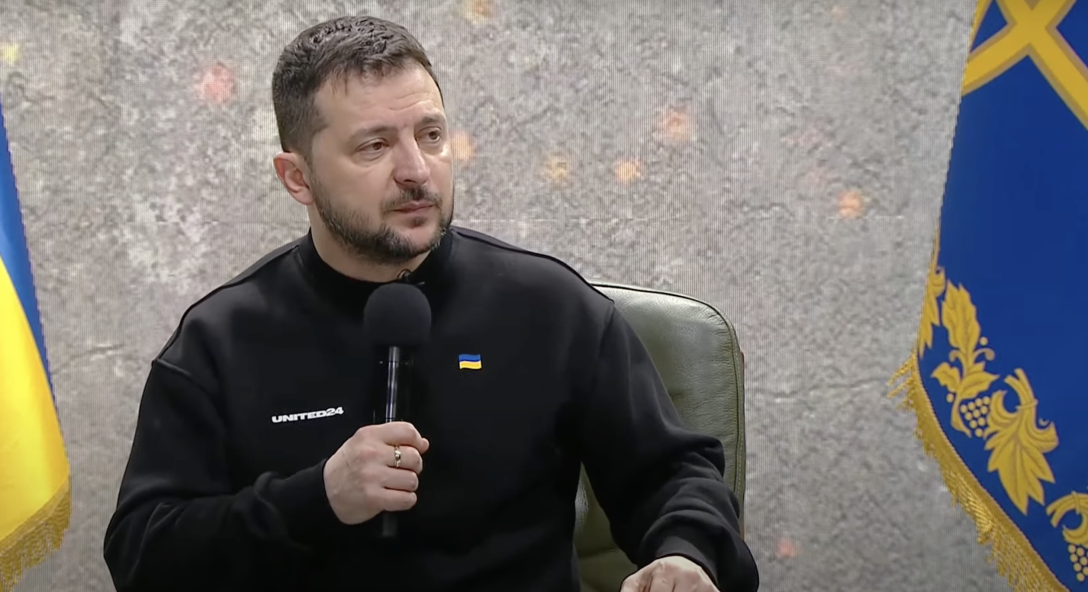Kellogg in Kyiv: What Trump's envoy says about Putin's readiness for peace and why it raises concerns.
President Volodymyr Zelensky confirmed on the night of Thursday, December 19, the information from Reuters that Trump's future special representative for the Russian-Ukrainian war, Keith Kellogg, will visit Ukraine before the inauguration of the newly elected US president. "We expect Mr. Kellogg in early January, and then we will discuss what he has or had in mind," noted the head of state, referring to the ideas previously expressed by Mr. Kellogg about the cessation of the Russian-Ukrainian war. At the same time, the Ukrainian leader, expressing some skepticism regarding the success of Mr. Kellogg's mission, added: "To be honest, I don't believe that Putin wants to end the war."
Meanwhile, Keith Kellogg himself stated on Fox News that (video) he believes that both Ukraine and Russia are now ready to talk about peace—primarily because both sides are "exhausted."
"After 1000 days of war... the largest and longest since World War II, it's time to end it. I believe that President Trump will fulfill this promise he made to America and the world," emphasized Keith Kellogg. Highlighting that the Russian-Ukrainian full-scale war resembles a war of attrition, Trump's future special envoy summarized: "Imagine a fight in a cage. You have two fighters, and both want to stop. You need a referee to separate them. And I think President Donald Trump can do that."
Keith Kellogg did not deny that he plans to visit Kyiv and "several other European capitals" in early January 2025, as the next presidential administration aims to "end the Russian-Ukrainian war as soon as possible."
Meanwhile, according to the newly elected US president himself, Donald Trump's team is still considering a plan to cease hostilities in Ukraine. At the same time, the future head of the White House recently assured that he has made some progress toward peace.
What is the basis for conducting parity peace negotiations
If one abstracts from the US position, the political scientist notes, it can be assumed that "more or less parity negotiations" can only begin when it is possible to stop the enemy on the battlefield, which is a key prerequisite for negotiations. Based on this thesis, the expert points out: "For this prerequisite to become a reality, the efforts of our Western partners are insufficient. There is a need for maximum concentration within the country, and possibly a new tactic in the East. This should now be task number one. Therefore, some of our politicians need to think not about elections, but about how to stop the enemy and thereby bring the end of the war closer."
Modeling the situation regarding the activities of Trump's future special representative for the Russian-Ukrainian war, Volodymyr Fesenko noted the following: "Kellogg's mission will continue one way or another, and Ukraine cannot refuse offers for negotiations, as otherwise we risk losing American aid."
In response to a clarifying question about whether official Kyiv can combine flexibility and principledness in such a situation, the political scientist summarized: "At least for now, Ukraine is managing to do this. A recent interview with Zelensky for Le Parisien serves as a clear example, during which he realistically assessed the military situation, stating that Ukraine today does not have the strength to reclaim occupied territories. This is an example of flexibility and principledness, as it sends an indirect signal of readiness for a ceasefire along the front line, without recognizing the occupied territories as Russian. Another recent example concerns the reduction of the army. Yes, Zelensky says, we are ready for negotiations, but disarmament is unacceptable for us, as the main guarantee of our future security is a strong and powerful army, especially if we are not members of NATO.

Overall, according to Volodymyr Fesenko, Kyiv and Moscow are currently synchronously raising the stakes, and Ukraine continuously demonstrates that it does not wish to negotiate on Russia's terms. This, the political scientist is convinced, is the key meaning behind President Zelensky's latest statements about ending the war. At the same time, the expert notes that against the backdrop of a noticeable negotiation process between the US and Ukraine, we do not see any statements or demands from the United States directed at Russia, "and this is very concerning."
On what basis Trump's team will change its position on the peace process
According to the expert, Donald Trump will not be able to realize the aforementioned desire: "The interpretation of recent statements by Peskov, as well as the well-known rude Deputy Foreign Minister of the Russian Federation Ryabkov regarding the possibilities of ending the war, indicates speculative games by Moscow on Trump's desire to quickly conclude this story. After all, look, for example, Peskov states that the best method to achieve the goals of the "SVO" is negotiations."
However, reality, according to Dmitry Levus, will inevitably make its adjustments to Trump's position and then to Mr. Kellogg's. "The fact that the future US representative for Ukraine and Russia is currently trying to find some positive signs from the aggressor country is good, but Mr. Kellogg's statement about Russia's readiness for negotiations is not just optimistic, but overly optimistic."
As for Zelensky's recent statements, the political scientist believes that the current head of state is "trying, whether truthfully or not," to achieve from the West an increase in military support for Kyiv so that the Russian Federation does not have the opportunity to dictate its negotiation terms without ceasing hostilities and destroying Ukraine's civilian infrastructure. Preliminary agreeing with the opinion of the Ukrainian president that Putin indeed does not want to end the war, the political scientist added that the Kremlin, until Trump's patience runs out, "will engage in manipulative and provocative dances with Kellogg" and other representatives of the future US presidential administration.